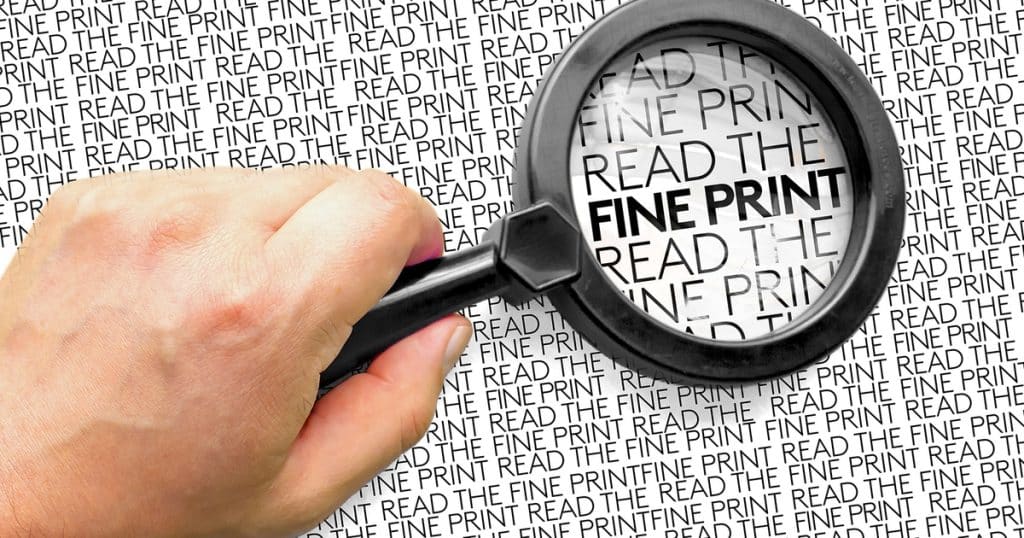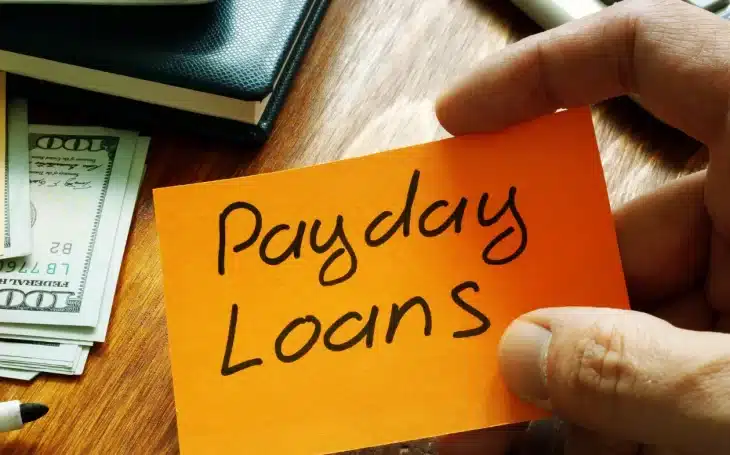Payday loans have become a quick solution for individuals facing urgent financial needs. These short-term, high-interest loans are marketed as a way to help borrowers get through tough times until their next paycheck arrives. However, payday loans can be a double-edged sword, often leading to deeper financial distress due to exorbitant fees and interest rates. Alongside legitimate payday loan services, there are scams that prey on vulnerable individuals, exacerbating their financial difficulties. Understanding payday loan scams and knowing how to protect yourself can help you avoid becoming a victim of these fraudulent schemes.
Key Takeaways:
- Payday loan scams include advance fee scams, fake lenders, phishing, and debt relief frauds.
- Red flags of scams include upfront fees, unsolicited offers, unclear terms, and high-pressure tactics.
- Protect yourself by researching lenders, verifying licenses, reading agreements carefully, and reporting suspicious activity.
- Always be cautious when sharing personal information, and know your rights as a borrower.
What Are Payday Loan Scams?
A payday loan scam occurs when fraudsters exploit the payday loan system to trick individuals into borrowing money under false pretenses. These scams can take many forms, but they all share the goal of taking advantage of a borrower’s desperation and lack of knowledge about the payday loan industry.
Types of Payday Loan Scams
Advance Fee Scams In this scam, the borrower is asked to pay an upfront fee or deposit before they can receive the loan. The scammer promises a large loan but never actually provides the funds. After the borrower pays the fee, they are either ignored or told that they need to pay more fees, ultimately leaving them with no loan and no money.
Fake Lenders and Websites Fraudulent websites pose as legitimate payday lenders and often look convincing at first glance. These sites may ask for personal information, such as Social Security numbers, bank account details, and employment information. Once the scammer has this sensitive data, they may steal the victim’s identity, drain their bank account, or sell their information to other criminals.
Phishing Scams Phishing scams occur when scammers send fake emails or text messages that appear to be from legitimate payday loan companies. The messages typically ask recipients to click on a link or call a phone number to verify or update their account information. Once the victim clicks on the link or provides personal details, their data is compromised, and the scammers may use it for malicious purposes.
Loan Modification Scams Loan modification scams are designed to prey on individuals who are already struggling with payday loan debt. Fraudsters offer to negotiate better terms or settle a loan for a reduced amount, requiring an upfront payment for their services. However, these scammers rarely, if ever, provide the promised services and often disappear after collecting the fee.
Debt Relief Scams Some payday loan scams claim to offer “debt relief” or “debt consolidation” services, assuring borrowers they can get out of debt faster and with lower interest rates. These services typically require a significant upfront fee or regular payments. In many cases, these companies do not follow through on their promises and may leave borrowers in an even worse financial situation.
Fake Collection Agencies Some scammers pose as payday loan collection agencies, threatening borrowers with legal action or jail time if they don’t pay their debts. These scammers use high-pressure tactics to coerce individuals into making immediate payments, often demanding money through untraceable methods like wire transfers or gift cards. Legitimate payday lenders do not make such threats or require immediate payments in unusual forms.
Red Flags of Payday Loan Scams
To avoid falling victim to payday loan scams, it is important to know what to look out for. Here are some key red flags to be aware of:
- Upfront Fees Legitimate payday lenders may charge fees, but they do not require you to pay anything before you receive the loan. If a lender asks you to pay an upfront fee or deposit, it’s likely a scam.
- Unclear or Excessive Fees Scammers often hide or fail to disclose their fees until after you’ve already signed the agreement. Look for any hidden charges or unclear terms that could indicate a scam.
- No Physical Address or Contact Information Always check the legitimacy of the payday loan company by looking for a physical address, phone number, and email address. A lack of contact information can be a sign of a fraudulent lender.
- Unsolicited Loan Offers If you receive an unsolicited loan offer, especially if it comes in the form of an email, text, or phone call, be cautious. Scammers often reach out to people who have never applied for a payday loan.
- Pressure Tactics Scammers use high-pressure tactics to get you to act quickly. If a lender urges you to apply for a loan or pay fees immediately, without giving you time to read the fine print, it could be a scam.
- Too Good to Be True Terms If a payday loan offer promises low-interest rates, no fees, or guaranteed approval, it’s likely too good to be true. Payday loans are inherently risky and expensive, so any offer that seems too favorable should raise suspicions.
- Lack of Regulation Always verify whether the payday lender is registered with relevant regulatory bodies, such as the Consumer Financial Protection Bureau (CFPB) or state regulatory agencies. Scammers operate outside of regulatory frameworks and are often unregistered.
How to Protect Yourself from Payday Loan Scams
Now that you know what payday loan scams look like, it’s crucial to take proactive steps to protect yourself. Here are some effective ways to shield yourself from falling victim to these fraudulent practices.
Research Lenders Before Borrowing

Before borrowing from a payday lender, take the time to research the company thoroughly. Check for a valid physical address, phone number, and customer reviews. Look for independent reviews or complaints about the lender on trusted websites like the Better Business Bureau (BBB) or Trustpilot. A legitimate payday lender will have a history of transparent business practices and customer feedback.
Verify Licensing
Most states have regulations in place that require payday lenders to obtain a license before they can legally operate. Check whether the lender is licensed in your state, and be wary of companies that claim to operate outside of the law. You can verify licensing through your state’s financial regulatory agency.
Read the Fine Print

Always read the loan agreement carefully, paying close attention to the interest rate, fees, and repayment terms. If any part of the agreement is unclear or seems suspicious, ask questions before signing. A reputable lender will be transparent about the terms and will take the time to explain anything you don’t understand.
Avoid Upfront Fees
Legitimate payday lenders do not ask for upfront fees or deposits. If a lender requests money before providing the loan, it is likely a scam. Similarly, avoid lenders that ask for personal or financial information before agreeing to give you a loan.
Report Suspicious Activity

If you suspect a payday loan scam, report it to the authorities immediately. You can file a complaint with the Federal Trade Commission (FTC), the Consumer Financial Protection Bureau (CFPB), or your state’s attorney general’s office. The more information authorities have, the better they can protect others from falling for similar scams.
Be Cautious with Personal Information
Protect your personal information by avoiding sharing it with unknown or unverified companies. Scammers often request sensitive details, such as your Social Security number or bank account information, to steal your identity. Never share this information unless you are certain the lender is legitimate.
Know Your Rights
Familiarize yourself with your rights as a borrower. The Truth in Lending Act (TILA) requires lenders to provide clear and concise information about loan terms, including interest rates and fees. Additionally, the Fair Debt Collection Practices Act (FDCPA) protects borrowers from abusive collection tactics. If a payday loan lender is violating your rights, seek legal advice.
Payday Loans vs. Personal Loans: A Comparison
When you find yourself in need of quick cash, you may come across various loan options, each with different terms and conditions. Among the most common choices are payday loans and personal loans. While both types of loans can provide you with immediate financial relief, they are very different in terms of cost, repayment structure, and eligibility requirements. Understanding these differences is essential to making an informed decision about which loan option is best for your financial situation.
In this article, we’ll compare payday loans and personal loans, highlighting their unique features, pros and cons, and helping you decide which one might be right for you.
What Are Payday Loans?
A payday loan is a type of short-term, high-interest loan typically offered by payday lenders. These loans are designed to bridge the gap between a borrower’s paychecks and are generally meant to be repaid on the borrower’s next payday. Payday loans are typically small amounts of money, often ranging from $100 to $1,000, with high fees and interest rates.
Key Features of Payday Loans:
- Short-term: Payday loans are typically due within two weeks, on or around your next payday.
- Small loan amounts: Most payday loans are for smaller amounts of money, usually between $100 and $1,000.
- High-interest rates and fees: The cost of borrowing a payday loan can be extremely high, with interest rates reaching up to 400% or more annually.
- Easy to qualify: Payday loans usually have minimal eligibility requirements. You typically need to be employed, have a steady income, and have an active bank account to qualify.
- Repayment on the next payday: Borrowers are expected to repay the loan in full by their next payday, which could lead to difficulty in repaying if the borrower doesn’t have enough funds.
- Potential for debt cycle: The high fees and short repayment term can make it difficult to repay the loan in full, leading many borrowers to roll over or take out additional payday loans, resulting in an ongoing cycle of debt.
Pros of Payday Loans:
- Fast and accessible: Payday loans are often approved quickly, sometimes in a matter of hours, making them a quick solution for financial emergencies.
- Minimal qualifications: Borrowers don’t need perfect credit scores to qualify, which makes payday loans accessible to people with poor or no credit history.
- No credit checks: Many payday lenders don’t perform traditional credit checks, meaning your credit score doesn’t play a major role in whether you’re approved for the loan.
Cons of Payday Loans:
- Extremely high interest rates and fees: Payday loans often come with APRs that exceed 400%, making them one of the most expensive forms of borrowing available.
- Short repayment terms: Since payday loans are due in full on your next payday, you may find it difficult to repay the loan in a short time frame, which could result in additional fees or rollovers.
- Debt cycle risk: The high costs and short repayment terms make it easy to fall into a cycle of debt. If you can’t repay your payday loan, you may be forced to take out another one just to pay off the first loan.
- Impact on credit score: While payday lenders don’t typically report to credit bureaus, unpaid loans may be sent to collections, negatively impacting your credit score.
What Are Personal Loans?
A personal loan is a type of unsecured loan that provides a lump sum of money to borrowers, which can be used for a wide range of purposes, such as debt consolidation, home improvements, or medical expenses. Personal loans typically come with lower interest rates and longer repayment terms than payday loans, making them a more affordable option for many borrowers.
Key Features of Personal Loans:
- Longer repayment terms: Personal loans typically come with repayment periods that range from one to five years, allowing borrowers more time to pay back the loan in smaller, more manageable installments.
- Higher loan amounts: Personal loans can range from a few hundred dollars to tens of thousands of dollars, depending on the lender and the borrower’s qualifications.
- Lower interest rates: Personal loans typically have lower interest rates than payday loans, ranging from 5% to 36%, depending on your creditworthiness.
- Credit checks required: Lenders typically require borrowers to undergo a credit check to qualify for a personal loan. The better your credit score, the lower your interest rate will likely be.
- Fixed monthly payments: Personal loans usually come with fixed monthly payments, making it easier to budget and plan for repayment.
- May require collateral: Some personal loans, such as secured personal loans, may require collateral (like a car or home) in case the borrower defaults.
Pros of Personal Loans:
- Lower interest rates: Personal loans generally have much lower interest rates than payday loans, which can make them more affordable for borrowers.
- Longer repayment terms: The longer repayment period allows borrowers to repay their loans in smaller installments, reducing the financial burden in comparison to payday loans.
- No risk of rollover: Personal loans don’t typically require borrowers to roll over the loan or take out a new loan to pay off the old one, unlike payday loans.
- Can improve credit score: If you take out a personal loan and make your payments on time, it can help improve your credit score, as personal loans are often reported to credit bureaus.
Cons of Personal Loans:
- Harder to qualify for: Personal loans require a credit check and a solid credit history, so it can be difficult for individuals with poor credit to qualify for favorable loan terms.
- Longer approval process: Personal loans usually take longer to process than payday loans, and you may need to provide more documentation (like proof of income and employment).
- May come with fees: Some personal loans charge origination fees, prepayment penalties, or late fees, which can increase the overall cost of borrowing.
- Collateral may be required: If you opt for a secured personal loan, you may risk losing your collateral if you fail to repay the loan.
Key Differences Between Payday Loans and Personal Loans
| Aspect | Payday Loan | Personal Loan |
|---|---|---|
| Loan Amount | Typically $100 – $1,000 | Typically $1,000 – $50,000 |
| Interest Rates | Extremely high, often 400% or more APR | Much lower, typically 5% – 36% APR |
| Repayment Term | Short-term, due on your next payday | Longer term, typically 1 – 5 years |
| Qualification | Minimal requirements (steady income, bank account) | Requires good credit score and income verification |
| Credit Check | Often no credit check | Credit check required |
| Fees | High fees, often rolled into loan | May have origination fees or prepayment penalties |
| Approval Time | Fast, often within hours | Longer, typically a few days |
| Risk of Debt Cycle | High risk of falling into a debt cycle | No risk of debt cycle, fixed monthly payments |
Which Loan Option is Best for You?
The decision between a payday loan and a personal loan depends largely on your financial situation and the urgency of your need for cash.
When Payday Loans Might Be a Good Option:
- Immediate financial need: If you need cash quickly and have no other options, a payday loan might provide a quick solution. However, be sure you can repay it on your next payday.
- Minimal loan amount needed: Payday loans are suitable for covering small expenses, such as a car repair or emergency bill, when you can pay it back quickly.
When Personal Loans Might Be a Better Choice:
- Larger loan amounts: If you need more significant funding (over $1,000) or plan to use the money for debt consolidation or major expenses, a personal loan is a better option.
- More time to repay: If you need more time to repay the loan, a personal loan’s longer repayment terms are more suitable for spreading out the cost.
- Lower interest rates and fees: If you have good credit, a personal loan will likely offer lower rates and fees than payday loans, making it a more cost-effective choice in the long run.
Conclusion
Payday loan scams can be devastating, leaving borrowers in an even worse financial position than before. By understanding how these scams work and knowing how to protect yourself, you can avoid falling victim to these fraudulent schemes. Always research lenders, read the fine print, and be cautious about sharing personal information. If you’re ever in doubt, consider reaching out to consumer protection agencies for guidance. Protecting your financial well-being starts with being an informed and cautious borrower.
FAQs
What should I do if I believe I’m a victim of a payday loan scam?
If you believe you’ve fallen victim to a payday loan scam, report the scam to the FTC or your state’s consumer protection office. You should also contact your bank to freeze your account and prevent further unauthorized transactions. Additionally, consider placing a fraud alert on your credit report to prevent identity theft.
Can payday loan scams hurt my credit score?
Yes, payday loan scams can hurt your credit score. If you provide personal information to a fraudulent lender, they may use your details to open unauthorized accounts in your name, which could negatively impact your credit.
How can I tell if a payday loan company is legitimate?
To determine if a payday loan company is legitimate, look for clear contact information, including a physical address and phone number. Research reviews and complaints from previous customers, and ensure the company is licensed in your state.
Are payday loans illegal?
Payday loans are not inherently illegal, but they are heavily regulated. Many states have laws that restrict payday lending practices, including interest rates, loan amounts, and loan terms. In some states, payday loans are banned altogether.
What are the warning signs of a payday loan scam?
Warning signs of a payday loan scam include requests for upfront fees, lack of a physical address, unsolicited loan offers, and high-pressure tactics to get you to sign up quickly.
Can I avoid payday loans altogether?
Yes, there are alternatives to payday loans, including borrowing from family or friends, seeking assistance from nonprofit credit counseling organizations, or exploring other low-cost financial options like personal loans or credit unions.
What happens if I don’t repay a payday loan?
If you fail to repay a payday loan, the lender may charge additional fees and interest, leading to a cycle of debt. The lender may also send your account to collections, which could negatively impact your credit score and result in legal action.

